- Home
- Alex Irvine
Dawn of the Planet of the Apes Page 7
Dawn of the Planet of the Apes Read online
Page 7
The grizzled, one-eyed ape did, though. Malcolm saw him, looking long and hard at the guns in the humans’ hands. On his face was an unsettling combination of hatred and desire.
I hope you keep a handle on that one, Malcolm thought. He wants trouble.
He stepped backward, watching the apes until they were gone and he was back in the company of humans again.
22
Maurice and Caesar rode together back through the city, returning along a different route than the one they had used to approach. Caesar had no desire to see the fence and bones again. Nor did he wish to view the image of hate on the building near the mouth of the tunnel. Everything he had seen worried him. He thought of the ape village and the human settlement. The apes seemed more settled, happier. Every moment he had spent in the presence of the humans stank of fear.
It was natural for them to be afraid, he thought. So few of them were left compared to before the sickness. But natural or not, their fear was a danger to apes.
Caesar thought about what he and his troop had done. He wondered whether it would be enough.
Maurice, next to him, hooted—a soft questioning sound. Caesar looked at him, and then glanced over his shoulder. Koba was riding a short distance behind with Grey and Stone. Caesar signaled to Maurice, making sure Koba could not see.
They are desperate, he said. This may not be the last we see of them. We must prepare.
Maurice nodded solemnly. But for what?
That was the problem. Caesar did not know.
* * *
Koba watched Caesar and Maurice, and knew they were signing. He also thought he knew what they were saying. Caesar had done exactly what he had wanted to do, just as he had told Koba the night before. We will go to them in strength, Caesar had said. And while we are strong, we will give them a gift.
A gift? Koba had said. We pay tribute to humans? His outrage had nearly made him say something unforgivable.
No. Not tribute, Caesar responded. We give them a gift that means much to them, but costs us nothing. From this they will know that we understand them and that we do not wish for war. But showing them our strength will let them know that we also do not fear them. We will meet as equals.
But we are not equals, Koba had protested. The humans scavenge the ruins of their city. They are rats. We are apes.
Whether we believe we are equals or not, Caesar had signed, we will tell them that. If we appear weak, they will try to kill us because they think they can. If we appear strong and wanting a fight, they will fight because they think they have no other choice. If we meet them face-to-face, strength-to-strength, they will respect us.
Koba had considered this then, and thought it might work. But he was disappointed. What he had wanted was a reason to kill every human that survived. Caesar would not give him that reason. He had left angry, though he had not told Caesar that. Now, this morning, he was riding angry because he had hoped to make a show of strength involving human blood, instead of hard looks and gift-giving.
Caesar led the apes, but he did not have the only good ideas. Koba watched him and Maurice. The orangutan was very smart, but lacked the stomach to fight. Maybe that was because he ate only fruit. Whatever the reason, he always counseled patience, patience, patience. Koba believed there was a time for patience… but he also knew that one of the times patience was most important was during a hunt, when the hunter had to wait for the prey to make a mistake.
The humans would make a mistake, he thought. He had seen their fear and their hate, just as they had seen his. They would strike at the apes, Koba was sure of it. When that happened, the apes would strike back. He would make sure of that.
23
The noise inside the Colony at dawn had been nothing compared to the din now. Every single citizen, every surviving human being in San Francisco who was able to walk, was crushed into the space just inside of the gate.
There was an almost palpable air of panic. Knots of people shoved and grappled to get closer to Dreyfus, shouting their questions and venting their terror. Dreyfus himself stood with his back to the gate, holding a battered police megaphone to his mouth and raising his other arm in an effort to calm people down. Malcolm watched from the edge of the crowd, with Alexander and Ellie right with him. Alexander clutched his satchel. Both of them looked scared, and they had every right to be. This crowd was a bomb, and the appearance of the ape army had lit its fuse.
From the barrage of questions, a few were repeated enough that Dreyfus made an attempt to answer them first.
“We’re all immune!” he shouted through the megaphone. “We’re all immune or we wouldn’t be here!” He cut his eyes at Ellie as he said this, and Ellie in turn looked to Malcolm. She had said this to Dreyfus the day before, and if it turned out not to be true… well, that didn’t bear thinking about.
“Now please, try to—try to calm down,” Dreyfus said. From somewhere in the crowd a man shouted.
“How did they find us?” Several other voices took up the question. Dreyfus waved the megaphone, trying to settle them enough that they would be able to hear his response. There was a brief pause, or at least a slight lessening of the general pandemonium.
“We, uh… we found them,” Dreyfus said. “Just yesterday. There was—”
He didn’t get a chance to go on. The crowd exploded. From the uproar came a dozen variations on a single question, given full voice by another man, right in the front. He shoved forward, until he was up against the cordon of Dreyfus’s unofficial police guard.
“You knew they were out there, and you didn’t tell us?” he shouted at the top of his lungs.
Malcolm gathered Ellie and Alexander closer to him, trying to protect them from the sudden surge and crush of the crowd as people jammed forward, their furious panic abruptly redirected from the apes to Dreyfus’s failure. Dreyfus’s guards held their rifles across their bodies and forced the crowd back, but the circle of space around the Colony’s leader was getting smaller by the moment.
This is going to turn violent, Malcolm thought. Any second now.
Dreyfus seemed to be thinking the same thing. His voice pitched higher as he shouted into the megaphone.
“I was only waiting to—”
“What if they come back?” a woman shouted between two of his guards. They shoved her back, but the crowd was on the verge of clawing its way through the cordon. Malcolm started to look around for the best way to get the hell out of there if the situation really spiraled out of control.
Dreyfus climbed part of the way up the scaffolding that supported the parapet. He waved for silence, but the crowd’s panic was a feedback loop. They were almost beyond any one person’s ability to keep them from rioting.
“If they come back,” he began, and realized not enough of them could hear him. Malcolm saw him frightened—maybe for the first time ever—and he began again, louder this time. “If they come back, they’re gonna be sorry they ever did!”
This got the crowd’s attention. They wanted a rallying point. They needed someone to focus their attention and their emotions, to give them a place to displace their anxiety about this new… threat?
Were the apes a threat?
Malcolm wasn’t sure.
The crowd settled down somewhat. They were still rowdy, still shouting, but Dreyfus saw that he had a chance to make a point.
“We may not have the manpower this city once did, but we have the firepower. Those stockpiles left behind by FEMA, the National Guard, we have it all.” He let that sink in, gauging the reaction of the crowd. They continued to be restive, still on edge, but for the moment most of them were listening.
“Look, I know why you’re scared,” Dreyfus continued. “I’m scared, too, believe me. But I recognize the trust you all placed in me, I do. We’ve been through hell together. When we settled here, it was because we’d had enough of living in fear, living like animals. We spent four years fighting that virus, then another four fighting each other after the city came apart.<
br />
“It was chaos—worse than anything I’d seen in all my years on the force, and I want you to know, there’s not a day that goes by when I don’t think about that. It wasn’t until we came here—and started working together—that we finally started to live again, like human beings. And I would never do anything to jeopardize that, I promise you.”
Malcolm could only admire the skill Dreyfus was demonstrating. He’d taken a sliver of a chance to turn back the tide of panic, and now he was already rallying everyone together by recalling their common experience. A master of his craft, the man looked from face to face in the crowd, making eye contact with the people who moments before had been ready to lynch him.
His tone changed a little, now that he’d brought them back from the brink.
“But you all know what we’re up against. We’re almost out of fuel. Which means no more power—which means we could slip back to the way things were. That dam up there was the answer. We just had no idea… they were up there, too.”
“So what do we do now?” someone cried. It was the same woman who had asked what they would do if the apes returned. Dreyfus had turned her attention toward the future, toward action rather than reaction.
Malcolm had always taken Dreyfus’s leadership for granted. The survivors of the flu had fallen into place around him because he had been the police chief, and then the mayor as the entire world sneezed blood and died. But now Malcolm saw that there was a reason for that. Whatever intangible characteristic it was that defined a leader, Dreyfus had it.
Maybe Malcolm had a little of it, too. He wondered about that. At least the ape chief seemed to think so.
“We will find another way,” Dreyfus said. “You all know Malcolm,” he added, pointing him out. Heads turned to look. “He’s not just a brilliant architect, he cares about the future of this community as much as I do. And I’ve already spoken to him about finding an alternative power source.”
Just like that, Malcolm’s opinion changed. He kept looking at Dreyfus, not trusting himself to stay impassive—much less hopeful—if he had to interact with the crowd at that moment.
Because there was no alternative power source. Dreyfus had suddenly gone all politician on the crowd, and on Malcolm in particular, waving a sign of hope that only Malcolm knew to be false. If they didn’t get the dam running, there would be no power, except what they could keep squeezing out of the generators. That would only last as long as they could keep finding drips and trickles of fuel, which were growing scarcer and scarcer.
That son of a bitch, Malcolm thought. What Dreyfus had done, more or less, was take the bull’s-eye off his own back and put it on Malcolm’s. It was one thing to lie in a political speech, but it was another entirely to tell a bald-faced lie in a life-or-death situation.
Especially when it was Malcolm’s death they were talking about. If they couldn’t get the dam operational and there was no other power option, the Colony would blame him. It wasn’t just possible, but probable that someone in the Colony would be so desperate and angry about the failure of the power project, that he would put a bullet or a knife in the person he blamed for it.
The crowd now focused on him. First Dreyfus had shifted their attention away from the apes. Then he’d shifted it away from himself. Dreyfus had made Malcolm the fulcrum of their hopes. And now he swung into full-on rallying mode.
“Because power isn’t just about keeping the lights on. It’s about giving us the tools to reconnect to the rest of the world. To find out who else is out there, so we can start to rebuild—and reclaim—the world we lost.” He paused for a professional beat, bringing the crowd back to him. “We will get there. You have my solemn promise.”
By which, Malcolm thought, he meant they had Malcolm’s promise.
Dreyfus wrapped up his speech by exhorting the assembled citizens of the Colony to return to their necessary business. They still had machines to repair, fuel to find, food to cook, children to raise.
“This is our home,” he said. “Nothing will take it from us, and nothing will stop us from rebuilding our civilization and reclaiming what was once ours. Now let’s get to it.”
The crowd started to break up, encouraged by Dreyfus’s guards spreading out and moving them along. Malcolm, Ellie, and Alexander stayed where they were, near the base of the stairs leading to the top of the parapet. A few people looked their way, but none approached them.
“That was quite a performance,” Ellie said.
“Yeah,” Malcolm said, watching the passers-by and keeping his voice low. “It sure was.” Then he looked straight at her. “I’ll catch up with you in a bit. Right now I have to find out what the hell he thinks he’s talking about.”
24
He caught up with Dreyfus as the crowd dispersed, waiting while he had exchanged a quiet word with one of his lieutenants. Then Malcolm approached him and spoke, trying not to sound angry.
“There is no alternative power source,” he said, keeping his voice low. “That dam’s our only option.”
“Fine,” Dreyfus said. “Then we’ll do what we have to do.” He started walking, and Malcolm went with him under the parapet and through a hall that led to his office. Maps of San Francisco covered the walls, each heavily annotated with information about earthquake damage, the location of resources that might not yet have been recovered, previous sites of fighting with long-gone gangs. Other maps of the Bay Area highlighted places they were planning to search. There were farms to explore so they could perhaps start growing more food, marinas to search for fishing boats that might still float… even other dams to assess, in an effort to get the lights back on.
As Dreyfus’s security entourage began to leave, Malcolm lingered over the circled spot on the map marking the dam he and his team had seen the day before. He mentally added a note: Here be apes.
“What does that mean, ‘we’ll do what we have to do’?” he asked when they were alone.
“I meant what I said back there.” Dreyfus looked at the regional map and put a finger right on the spot Malcolm had pegged as the apes’ location. “If we have to fight them, we fight them.”
“You can’t be serious,” Malcolm said. “Did you see them? That’s an army. They showed up to let us know they have an army. We can’t fight them. You think we can just hand out a bunch of guns and go after them? We’ll be massacred.”
Dreyfus turned away from the map and pointed back in the direction of the Colony plaza.
“You see what’s going on here,” he said. “These people are going to turn on each other. On me!” He brought himself up short. “But this isn’t about me. That power is everything. I’m not giving up on this.”
“Neither am I,” Malcolm said. “But you know you just put a big target on my back, right?”
“I had to do something,” Dreyfus replied. “You saw that crowd. They were this far from turning into a mob.” He held up one hand, thumb and forefinger an inch apart.
“So you pointed them at me instead of you. Thanks.”
Dreyfus sat and rubbed the bridge of his nose, closing his eyes and sinking into his chair.
“Listen,” he said after a moment. “You can hate me for it if you want. But if the power doesn’t come back on around here, the next thing that’s going to happen is these people are going to turn on each other. I’m trying to keep that possibility as far away as possible.”
“By turning them on me instead,” Malcolm said.
“Would you rather I let them work themselves up to riot and start killing each other?”
If that keeps Alexander and Ellie out of it, Malcolm thought, then yes, that’s what I would rather have happen.
But it was done now, so all he could do was figure out how to make it work. They had tried getting the power plants at Potrero and Pittsburg back online, they had tried rewiring old solar panels… they had tried everything. Too much time had gone by. There was no fuel to run the big power plants, and the kind of delicate equipment needed to generate power with
the solar panels had long since corroded to junk. Dams were much simpler, their basic technology unchanged since the invention of the steam turbine.
If Malcolm was going to keep Dreyfus’s promise, he was going to have to figure out a way to get that dam running again. And now he was going to have to do it even though the apes’ leader had made it very clear that he didn’t want to see the humans again.
Devil and the deep blue sea, Malcolm thought. But hey, as long as he was reciting proverbial expressions, might as well add in the old saw about necessity being the mother of invention. He sighed, trying to let go of the impulse he was feeling to punch Dreyfus in the mouth. It didn’t completely go away, but throwing punches wouldn’t solve anything. Malcolm had never been much for fighting. No point in starting now.
“Okay,” he said. “I think I have an idea.”
“You do?” Dreyfus looked dubious.
“Well, I better. You made sure of that.” Malcolm paused for a moment, getting himself the rest of the way under control. Dreyfus needed him to get the power going, but he needed Dreyfus on his side, too. It wouldn’t do anyone any good for the two of them to be enemies. “Here’s what I think I can do,” he went on, and started to lay out his plan.
25
An hour later Malcolm was at the garage in Fort Point. He watched as two mechanics poured dirty liquid out of five-gallon cans. The flow went through a jerry-rigged set of multiple coffee filters, and into funnels positioned over another set of cans. They poured slowly, and the purified fuel dripped through the filters just as slowly. After every couple of pints, the mechanics had to stop and scrape out the gunk. After every couple of gallons, they had to throw the filters away and replace them.
This was what happened, he mused, when you were down to scavenging gasoline—or any hydrocarbon—from the bottoms of sealed tanks. What was left there had to be purified before it could be used. Before the flu, no gas station would have sold it.

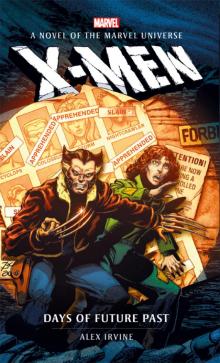 Marvel Novels--X-Men
Marvel Novels--X-Men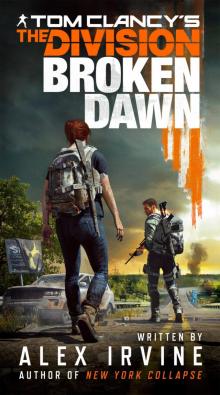 Tom Clancy's the Division
Tom Clancy's the Division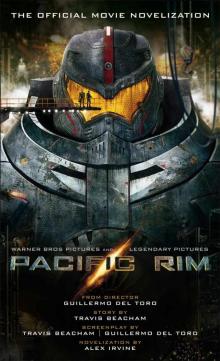 Pacific Rim: The Official Movie Novelization
Pacific Rim: The Official Movie Novelization Anthropocene Rag
Anthropocene Rag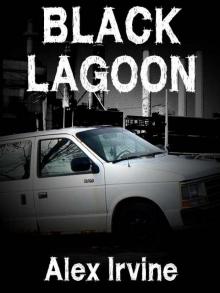 Black Lagoon
Black Lagoon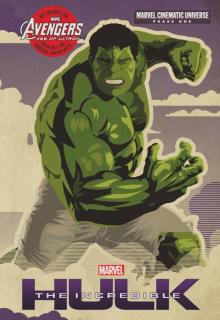 Phase One: The Incredible Hulk
Phase One: The Incredible Hulk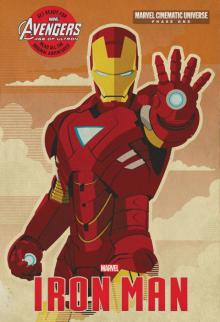 Phase One: Iron Man
Phase One: Iron Man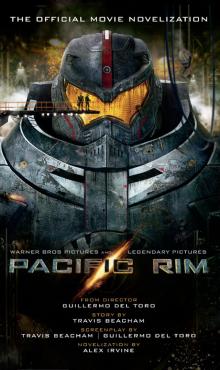 Pacific Rim
Pacific Rim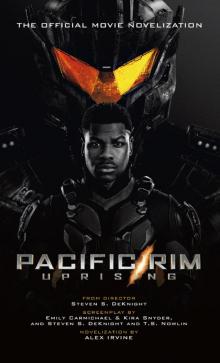 Pacific Rim Uprising--Official Movie Novelization
Pacific Rim Uprising--Official Movie Novelization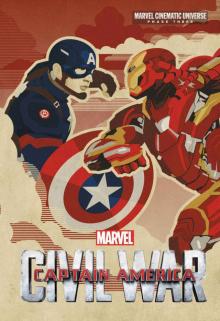 Phase Three: Marvel's Captain America: Civil War
Phase Three: Marvel's Captain America: Civil War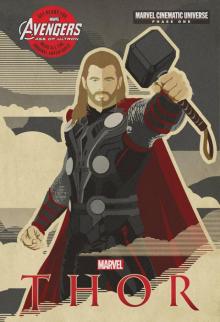 Phase One: Thor
Phase One: Thor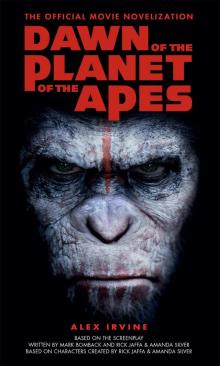 Dawn of the Planet of the Apes: The Official Movie Novelization
Dawn of the Planet of the Apes: The Official Movie Novelization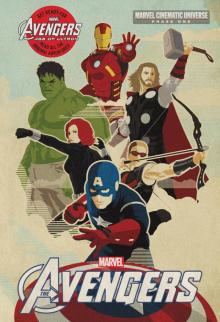 Phase One: Marvel's The Avengers
Phase One: Marvel's The Avengers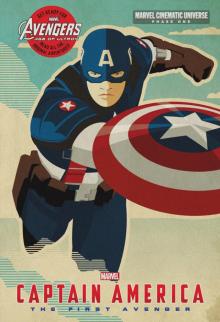 Phase One: Captain America
Phase One: Captain America Exiles
Exiles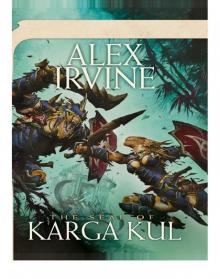 The Seal of Karga Kul: A Dungeons & Dragons Novel
The Seal of Karga Kul: A Dungeons & Dragons Novel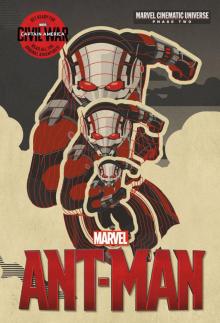 Marvel's Ant-Man - Phase Two
Marvel's Ant-Man - Phase Two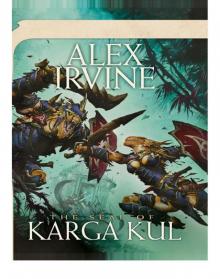 The seal of Karga Kul (dungeons and dragons)
The seal of Karga Kul (dungeons and dragons) Mare Ultima
Mare Ultima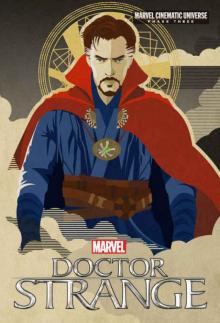 Phase Three: MARVEL's Doctor Strange
Phase Three: MARVEL's Doctor Strange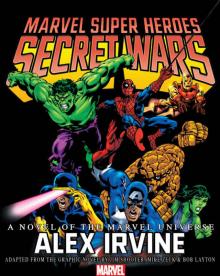 MARVEL SUPER HEROES SECRET WARS
MARVEL SUPER HEROES SECRET WARS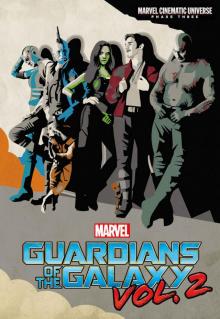 Phase Three: MARVEL's Guardians of the Galaxy Vol. 2
Phase Three: MARVEL's Guardians of the Galaxy Vol. 2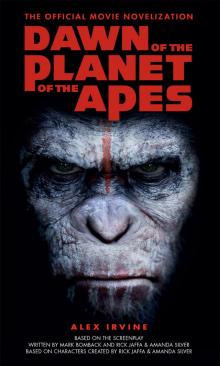 Dawn of the Planet of the Apes
Dawn of the Planet of the Apes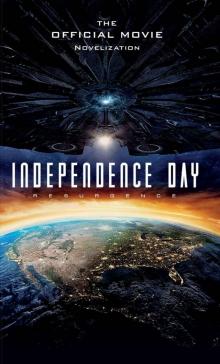 Independence Day: Resurgence: The Official Movie Novelization
Independence Day: Resurgence: The Official Movie Novelization